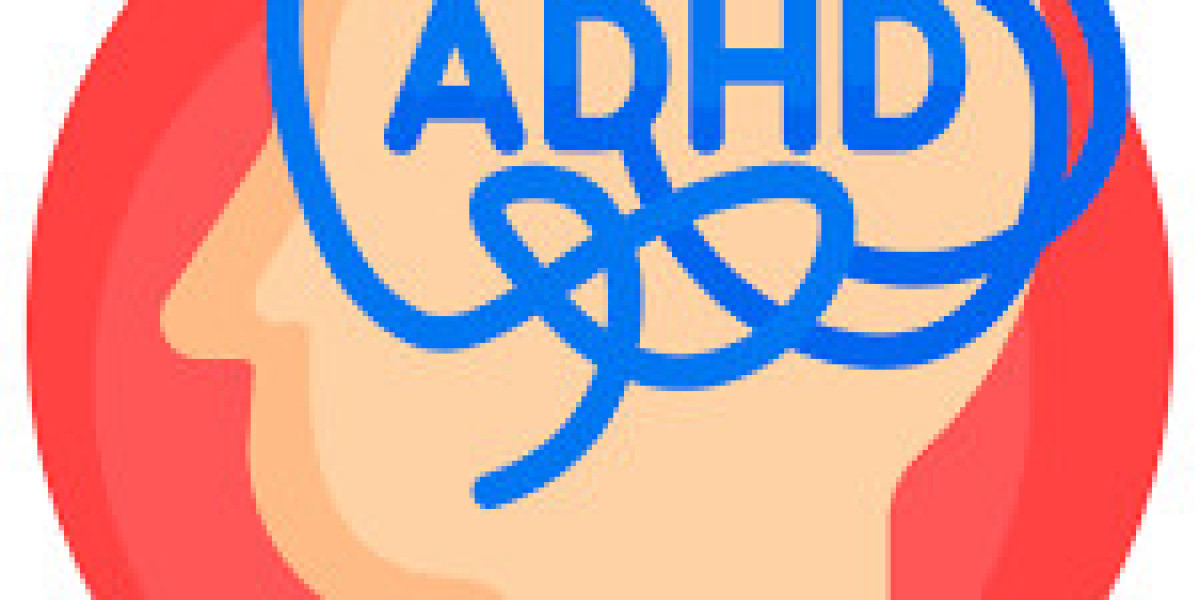Attention Deficit Hyperactivity Disorder (ADHD) is a neurodevelopmental condition that affects millions of people worldwide. Characterized by symptoms such as inattention, hyperactivity, and impulsivity, ADHD can significantly impact daily life. While the exact cause of ADHD remains unknown, a combination of genetic, environmental, and neurological factors is believed to contribute to its development. In recent years, there has been growing interest in the role of nutrition in managing ADHD symptoms. Although diet alone is not a cure for ADHD, certain foods and dietary patterns may help or hinder symptoms, offering a potential complementary approach to traditional treatments like medication and therapy.
Understanding ADHD and Its Impact
ADHD is typically diagnosed in childhood, but it can persist into adulthood. The disorder is divided into three subtypes: predominantly inattentive, predominantly hyperactive-impulsive, and combined presentation. The symptoms can vary widely, but they often include difficulty focusing, forgetfulness, restlessness, impulsivity, and difficulty completing tasks. These symptoms can affect academic performance, work productivity, and social relationships.
The management of ADHD often involves a combination of medication, behavioral therapy, and lifestyle modifications. While medication, such as stimulants like methylphenidate and amphetamines, can be effective in reducing symptoms, they may not be suitable for everyone and can have side effects. This has led many to explore alternative or complementary treatments, including dietary interventions.
The Role of Nutrition in ADHD
Nutrition plays a crucial role in brain function and overall health, making it a logical area of interest for those looking to manage ADHD symptoms. The brain requires a variety of nutrients to function optimally, and imbalances in these nutrients may exacerbate ADHD symptoms. Additionally, some foods may trigger or worsen symptoms, while others may have a calming effect or support cognitive function.
Foods That May Help Manage ADHD Symptoms
Omega-3 Fatty Acids
Omega-3 fatty acids,
Particularly eicosapentaenoic acid (EPA) and docosahexaenoic acid (DHA), are essential for brain health. These fats are important components of cell membranes in the brain and play a role in neurotransmitter function. Several studies have suggested that omega-3 supplementation may help reduce ADHD symptoms, particularly inattention and hyperactivity.
Sources:
Fatty fish (such as salmon, mackerel, and sardines), flaxseeds, chia seeds, and walnuts.
Protein-Rich Foods
Protein is essential for the production of neurotransmitters, the chemicals that transmit signals in the brain. Consuming adequate protein can help stabilize blood sugar levels, which may reduce symptoms of irritability and inattention.
Sources:
Lean meats (chicken, turkey), eggs, beans, lentils, tofu, and dairy products.
Complex Carbohydrates
Complex carbohydrates provide a steady source of glucose, the brain's primary energy source. Unlike simple carbohydrates, which can cause rapid spikes and drops in blood sugar levels, complex carbohydrates are digested slowly, providing a more stable energy supply that may help with focus and concentration.
Sources:
Whole grains (brown rice, oats, quinoa), fruits, vegetables, and legumes.
Iron-Rich Foods
Iron is necessary for the production of dopamine, a neurotransmitter that plays a key role in attention and focus. Low iron levels have been associated with more severe ADHD symptoms, and increasing iron intake may help improve cognitive function.
Sources:
Red meat, poultry, fish, spinach, lentils, and fortified cereals.
Zinc-Rich Foods
Zinc is involved in the regulation of neurotransmitters and brain communication. Some studies have found that children with ADHD may have lower levels of zinc, and supplementation may help improve symptoms, particularly hyperactivity and impulsivity.
Sources:
Meat, shellfish, nuts, seeds, and whole grains.
Magnesium-Rich Foods
Magnesium plays a role in neurotransmitter activity and brain function. Some research suggests that magnesium supplementation may help reduce hyperactivity, restlessness, and anxiety in individuals with ADHD.
Sources:
Leafy green vegetables, nuts, seeds, whole grains, and legumes.
B-Vitamins
B-vitamins, particularly B6, B9 (folate), and B12, are essential for brain function and the production of neurotransmitters. Adequate intake of these vitamins may support cognitive function and reduce symptoms of inattention and hyperactivity.
Sources:
Poultry, fish, eggs, dairy products, leafy greens, and fortified cereals.
Foods and Ingredients That May Hinder ADHD Symptoms
Sugary Foods and Beverages
High sugar intake has been linked to increased hyperactivity and impulsivity in children, although the evidence is mixed. Rapid spikes in blood sugar levels can lead to periods of hyperactivity followed by crashes, which may worsen ADHD symptoms.
Examples:
Candy, soda, pastries, and sugary cereals.
Artificial Food Additives
Some studies suggest that artificial colors, flavors, and preservatives may contribute to hyperactivity and other behavioral problems in children with ADHD. The Feingold diet, which eliminates these additives, has been popular among some parents, though the evidence supporting its effectiveness is still debated.
Examples:
Synthetic food dyes (such as Red 40, Yellow 5), artificial flavors, and preservatives like sodium benzoate.
High-Fructose Corn Syrup
High-fructose corn syrup (HFCS) is a common sweetener found in many processed foods and beverages. Some research suggests that HFCS may contribute to insulin resistance and inflammation, which could potentially worsen ADHD symptoms.
Examples:
Soft drinks, candy, snack foods, and some breakfast cereals.
Caffeine
While small amounts of caffeine may improve focus and concentration, excessive caffeine intake can lead to increased anxiety, restlessness, and sleep disturbances, all of which can exacerbate ADHD symptoms.
Examples:
Coffee, energy drinks, tea, and certain sodas.
Food Allergens
Some individuals with ADHD may have food sensitivities or allergies that worsen their symptoms. Common allergens include gluten, dairy, soy, and certain food additives. Identifying and eliminating trigger foods through an elimination diet may help reduce symptoms in some cases.
Examples:
Gluten-containing foods (wheat, barley), dairy products, soy products, and certain preservatives.
Processed Foods
Processed foods are often high in unhealthy fats, sugars, and additives while being low in essential nutrients. Diets high in processed foods have been associated with an increased risk of behavioral problems, including ADHD. Minimizing the intake of processed foods and focusing on whole, nutrient-dense foods may support better overall health and symptom management.
Examples:
Fast food, packaged snacks, frozen meals, and processed meats.
The Gut-Brain Connection and ADHD
Emerging research has highlighted the potential role of the gut-brain connection in ADHD. The gut microbiome, which consists of trillions of bacteria and other microorganisms in the digestive tract, plays a crucial role in overall health, including brain function. An imbalance in the gut microbiome, known as dysbiosis, has been linked to a variety of neurological and psychiatric disorders, including ADHD.
Diet plays a significant role in shaping the gut microbiome. A diet rich in fiber, prebiotics, and probiotics can promote a healthy gut microbiome, which may, in turn, support better brain function and reduce ADHD symptoms. Conversely, a diet high in sugar, unhealthy fats, and processed foods may contribute to dysbiosis and exacerbate ADHD symptoms.
Foods That Support a Healthy Gut Microbiome
Fiber-Rich Foods
Fiber is essential for maintaining a healthy gut microbiome. It serves as food for beneficial gut bacteria, promoting their growth and activity. A diet high in fiber may help support better brain function and reduce ADHD symptoms.
Sources:
Whole grains, fruits, vegetables, legumes, and nuts.
Prebiotic Foods
Prebiotics are a type of fiber that specifically feeds beneficial gut bacteria. Including prebiotic-rich foods in the diet can help maintain a healthy gut microbiome and support brain health.
Sources:
Garlic, onions, leeks, asparagus, bananas, and oats.
Probiotic Foods
Probiotics are live bacteria that can provide health benefits when consumed. They can help restore balance to the gut microbiome and may have a positive impact on brain function and behavior.
Sources:
Yogurt, kefir, sauerkraut, kimchi, and other fermented foods.
Conclusion
Family therapy is a vital component of comprehensive ADHD treatment. By involving the entire family in the treatment process, family therapy addresses the unique challenges associated with managing ADHD within the family context. Through psychoeducation, communication skills training, behavior management strategies, and emotional support, family therapy helps create a supportive environment that fosters positive behavioral changes and reduces the overall stress associated with ADHD.















